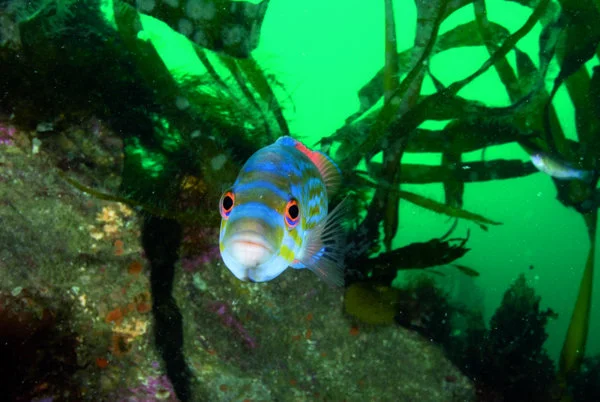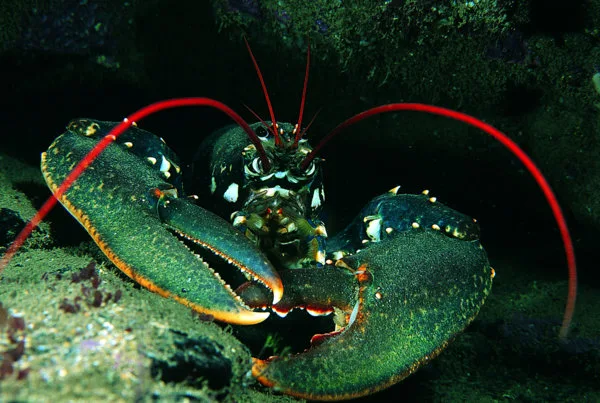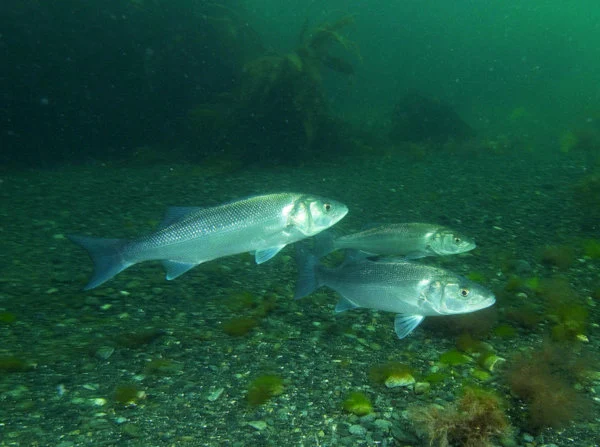Today, The Wildlife Trusts publish a new report, 'The case
for more Marine Conservation Zones'. The report identifies 48 areas at sea
that still need protection for their marine habitats and wildlife.
Nine of the sites identified are off Devon's coasts, with
two areas in the Bristol Channel, one in Lyme Bay and six Devon estuaries recommended
as MCZs.
Following the designation of 50 Marine Conservation Zones
since 2011 (of which six are in Devon) these new sites would complete a network of
special places where habitats and wildlife can flourish to safeguard healthy and
productive seas for the future.
All but one of the Devon sites in the report have already
been recommended as Marine Conservation Zones in a previous report to the government
following local consultations representing all groups of sea-users in the
south west.
The new report is published in advance of the government's
plans to announce a third and final phase of Marine Conservation Zones - the
government plans to consult the public in 2017 and designate the chosen sites in 2018. The
report will be presented to the environment minister, Therese Coffey.
Plymouth-based Joan Edwards, Head of Living Seas for The
Wildlife Trusts, said: "This is an unprecedented opportunity to create an
effective network of protected areas at sea. If the
government lives up to its stated commitments such a network would put us at the forefront of worldwide marine conservation.
Designating these 48 wild havens as Marine Conservation Zones would go some way
to guaranteeing a future for the extraordinarily diverse natural landscapes that
exist beneath the waves off our coast.
"The government designated 50 MCZs in the first two
phases. Unfortunately, this does not provide us with the really comprehensive network needed
to enable marine wildlife to thrive once more. We need a sensible number, in
the best locations and with the right degree of connectivity between areas. We hope
that the government will aim high and hit the 48 mark for this last phase."
The nine MCZs recommended in coastal and offshore areas of
Devon are:
1. Axe Estuary
Where? East
Devon, near Seaton
Why? Important
for saltmarsh and mudflats, feeding grounds for wading birds and nursery areas for fish such as bass
2. Dart Estuary:
Where? South
Hams, upstream of Dartmouth
Why? Habitats
provide food and shelter for huge range of species including seahorses, oysters, mussels, sponges and anemones.
3. Devon Avon
Estuary
Where? South
Hams, near Bigbury
Why? Important
nursery areas for crustaceans, molluscs and juvenile fish
4. Erme Estuary
Where? South
Hams
Why? Habitats
for lobsters and crabs, spawning grounds for sea trout
5. Lyme Bay Deeps
Where? 1055
square kilometres in south-west of Lyme Bay - westernmost point 4 miles east of Torbay
Why? Area used
by white beaked dolphins for feeding, breeding and raising their young. Also important for common dolphins, bottlenose
dolphins and harbour porpoise. Basking shark and minke whale also
recorded here. Feeding grounds for seabirds such as guillemot, razorbill and
Balearic shearwater
6. Morte Platform
Where? Bristol
Channel, 5km off Baggy Point
Why? Rich
communities of subtidal living reefs including ross worm reefs and mussel beds which provide shelter for many other marine
species
7. North-west of
Lundy
Where? Bristol
Channel, north-west of Lundy
Why? Diverse
seabed habitats supporting higher than average range of species, including sandy, muddy and rocky habitats
8. Otter Estuary
Where? East Devon,
near Budleigh Salterton
Why? Important for
saltmarsh and mudflats, feeding grounds for wading birds such as curlew and lapwing. Nursery areas for several fish species
9. Taw/Torridge
Estuary
Where? North
Devon, near Barnstaple and Bideford
Why? Important
habitat for migratory European eels, feeding grounds for wading birds, nursery area for fish such as bass
Harry Barton, Chief Executive of Devon Wildlife Trust, said:
"Devon 's marine treasures include spectacular underwater reefs, waving
forests of kelp and vital breeding grounds for our most charismatic ocean giants -
whales, dolphins and porpoises. We've lost so much in the past, but we can be
rightfully proud of what we still have. This is our chance to give our amazing marine
wildlife the protection it deserves, and desperately needs."
Cuckoo Wrasse, Male, Plymouth Photo copyright Paul Naylor (All rights reserved)
Common Lobster Photo copyright Paul Naylor (All rights reserved)
Bass Photo copyright Paul Naylor (All rights reserved)
Proposed Marine Conservation Zones
You can find more information about the individual sites
proposed within this report
Devon Wildlife Trust
Devon Wildlife Trust is the county's leading environmental
voluntary body, with more




